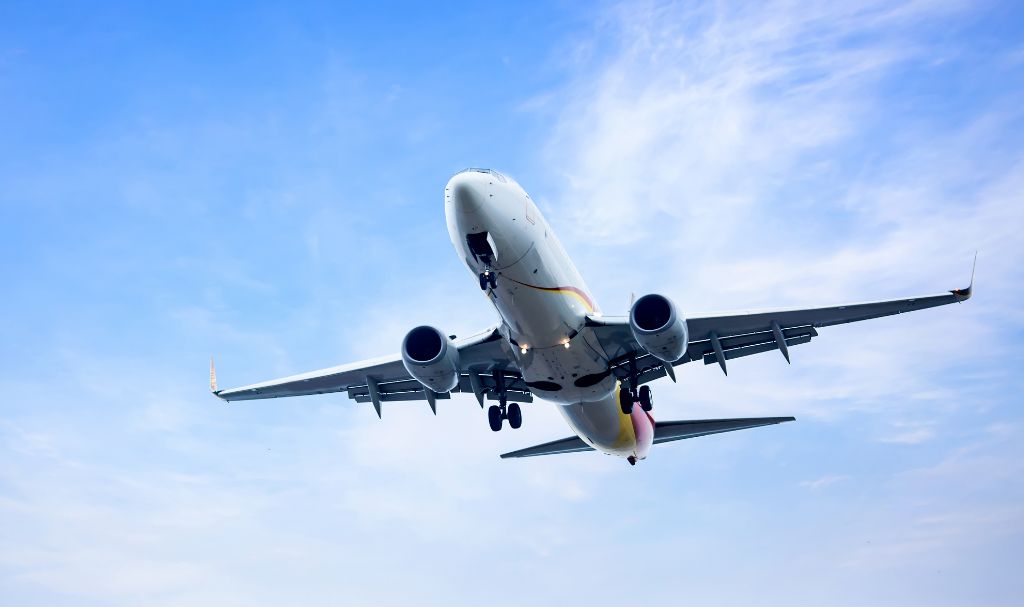Top Reasons Why Flights Are Delayed or Cancelled
20 June 2025
5 Mins Read

- The Top Reasons For Flight Delay And Cancellation
- 1. Adverse Weather Conditions
- 2. Air Traffic Control Restrictions
- 3. Technical Issues with Aircraft
- 4. Crew Shortages or Scheduling Conflicts
- 5. Airport Operational Challenges
- 6. Overbooking
- 7. Knock-On Effects from Other Flights
- What To Do If Your Flight Is Delayed When Traveling For Business?
- 1. Contact The Airline
- 2. Understand All Your Rights
- 3. Gather Documentation
- 4. Compensation
- 5. Consider Having Travel Compensation
- 6. Inform Your Clients And Colleagues
- Compensation Tip
- Bottom Line
Flight delays and cancellations are frustrating experiences for travelers, but understanding the common causes behind these disruptions can help you navigate the situation more easily.
Now, if you are a business owner, then flight delays or cancellations can be a significant issue.
Delayed or cancelled flights can lead to disruption in business operations, missed opportunities, and increased costs.
As a result, it can negatively impact client relationships, potentially leading to financial loss. So, yes! Flight delays during a business trip? It’s not only annoying but also nerve-wracking.
It’s also important to know your rights under air passenger protection laws, and legal-tech-services like Skycop make this even more straightforward and effective.
In this article, we highlight the top reasons why flights are delayed or cancelled.
The Top Reasons For Flight Delay And Cancellation
I’m assuming you have experienced at least one canceled flight during one of your travels. The US Department of Transportation states that the record shows there were 16.3 million canceled flights in the past year.
But why do so many cancellations occur? There can be many reasons, some of which are within the control of the airlines, while others are caused by extraordinary circumstances.
So, let’s take a look at the top reasons for flight delays and cancellations.
1. Adverse Weather Conditions
Severe weather conditions are one of the common reasons for flight delays. This can be heavy rain, snow, fog, and storms, which can be pretty unsafe for the flight to take off or land.
When such a situation arises, airlines are obligated to prioritize passenger safety. This results in flight disruptions.
2. Air Traffic Control Restrictions
Air traffic control, or ATC, primarily ensures the safe movement of planes when they are in the air or on the runway. But? Technical issues at Air Traffic Control (ATC) and overcrowded skies can often lead to major delays.
But, how does this occur? Well, ATC may often fail to allocate the slots properly or solve the technical issues. Even communication errors can often affect flight operations.
3. Technical Issues with Aircraft
The authorities often require aircraft maintenance to ensure better safety. There can be instances where the authorities find out the technical issues during the pre-flight checkups or maybe after the landing.
This can result in flight delay and cancellation. However, the airline authorities are obliged to fix these issues after takeoff.
4. Crew Shortages or Scheduling Conflicts
When it comes to airline operations, they must check the flight availability. Once this is affected, your flight may get cancelled or delayed.
Thus, the airlines are expected to schedule standby crews immediately to avoid delays or cancellations.
5. Airport Operational Challenges
Operational disruptions at airports can also cause flight delays and cancellations. These challenges include baggage handling issues, runway maintenance, and security delays, all of which are random and minor issues that can accumulate and cause significant delays.
6. Overbooking
Overbooking happens when airlines sell more tickets than available seats, which can result in denied boarding and cause you to miss your flight entirely.
Situations like this entitle you to compensation under regulations such as EU Regulation 261/2004, along with the option of rebooking or a full refund.
7. Knock-On Effects from Other Flights
If your flight is delayed, it was likely affected by a delay from an earlier flight.
This is known as the knock-on effect, which often occurs due to tight scheduling or unexpected issues that arise during the journey.
What To Do If Your Flight Is Delayed When Traveling For Business?
Let’s say your flight is delayed when you are traveling for business. The first thing to do is contact the airline immediately and explore all rebooking options. This way, you can also understand the reason for the delay.
If the delay seems significant, in that case, you can ask for potential compensation. This includes alternative flights and refunds.
On top of that, you must keep your travel documents, such as a boarding pass and booking confirmation, or anything that is related to the delay.
Here are the steps that you must take:
1. Contact The Airline
You can reach out to the customer service of the airlines or even use their app and websites to check:
- The updates
- Rebooking options
- Potential compensation.
Now, if you have a preferred airline, you can contact their customer service for any assistance.
2. Understand All Your Rights
You have to familiarize yourself with all kinds of passengers’ rights, which are related to the potential refunds or compensation for the delays.
3. Gather Documentation
Always try to keep your boarding pass, booking confirmation, or any other communication from the airlines related to the flight delay. These documents are going to help you in rebooking or making potential claims for the compensation process.
4. Compensation
If you think that the delay qualifies for compensation, you can always file a claim with the airlines or a third-party service provider.
5. Consider Having Travel Compensation
Do you have travel insurance? If yes! Then you can check if it covers any kind of flight delays as well as the related expenses, for instance, accommodation and meals.
6. Inform Your Clients And Colleagues
Always try to keep your business associates and clients updated on the delayed flight or any further changes in your schedule.
Compensation Tip
If the reason for the disruption was outside the airline’s control, you may not be eligible for flight compensation between 220 and £520 under the EU regulation.
This includes Adverse Weather Conditions, Air Traffic Control Restrictions, and Knock-On Effects from Other Flights, all of which are considered extraordinary circumstances.
One key tip to note is to keep all flight-related documentation handy, including a written report from the airline stating the reason for the cancellation or delay.
Bottom Line
The diverse reasons shared here can help you better understand why you may be facing a flight disruption and how to respond to the situation.
More importantly, know your rights under the EU 261/2004 regulation, including how it best applies to you.
Read Also:



















Comments Are Closed For This Article